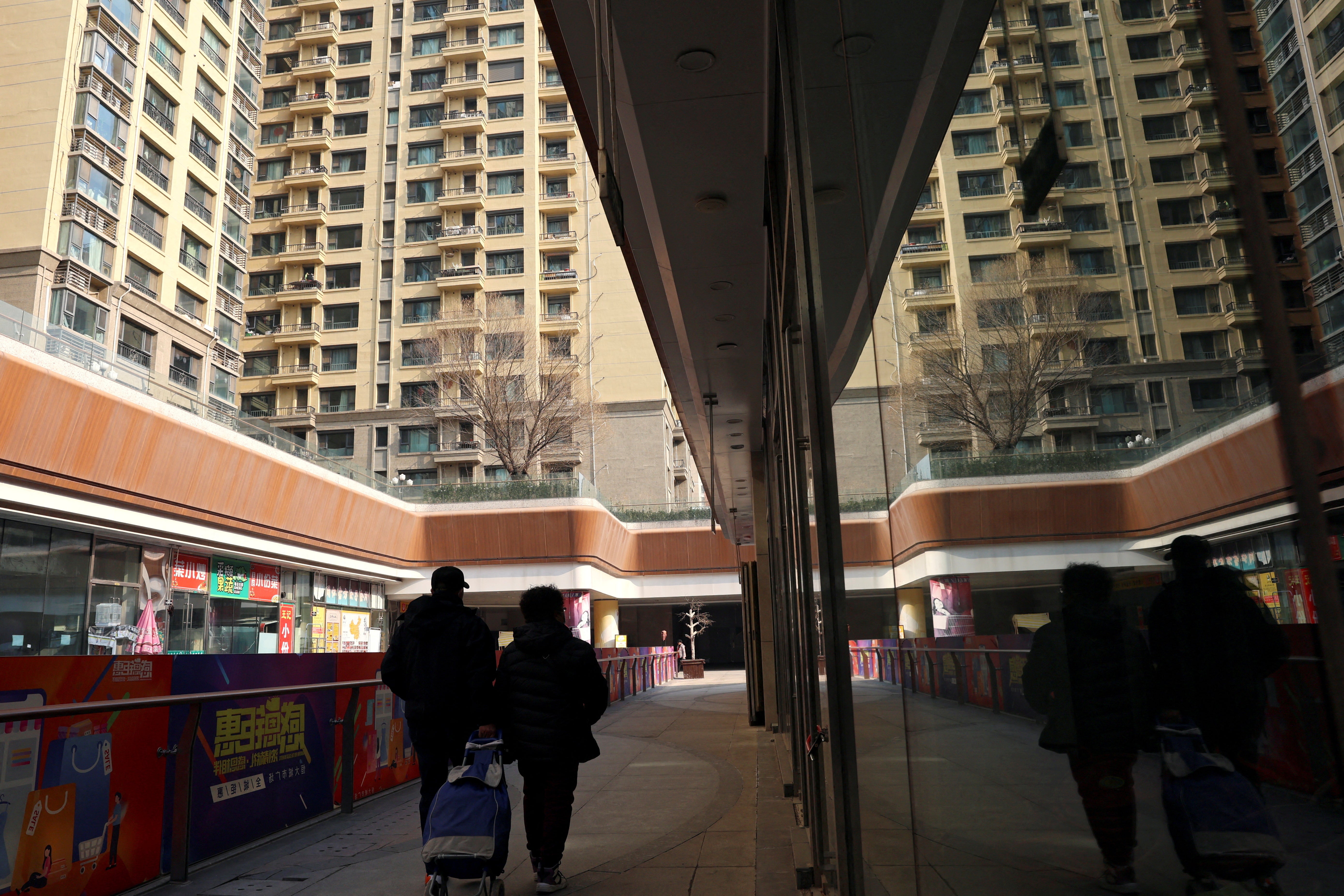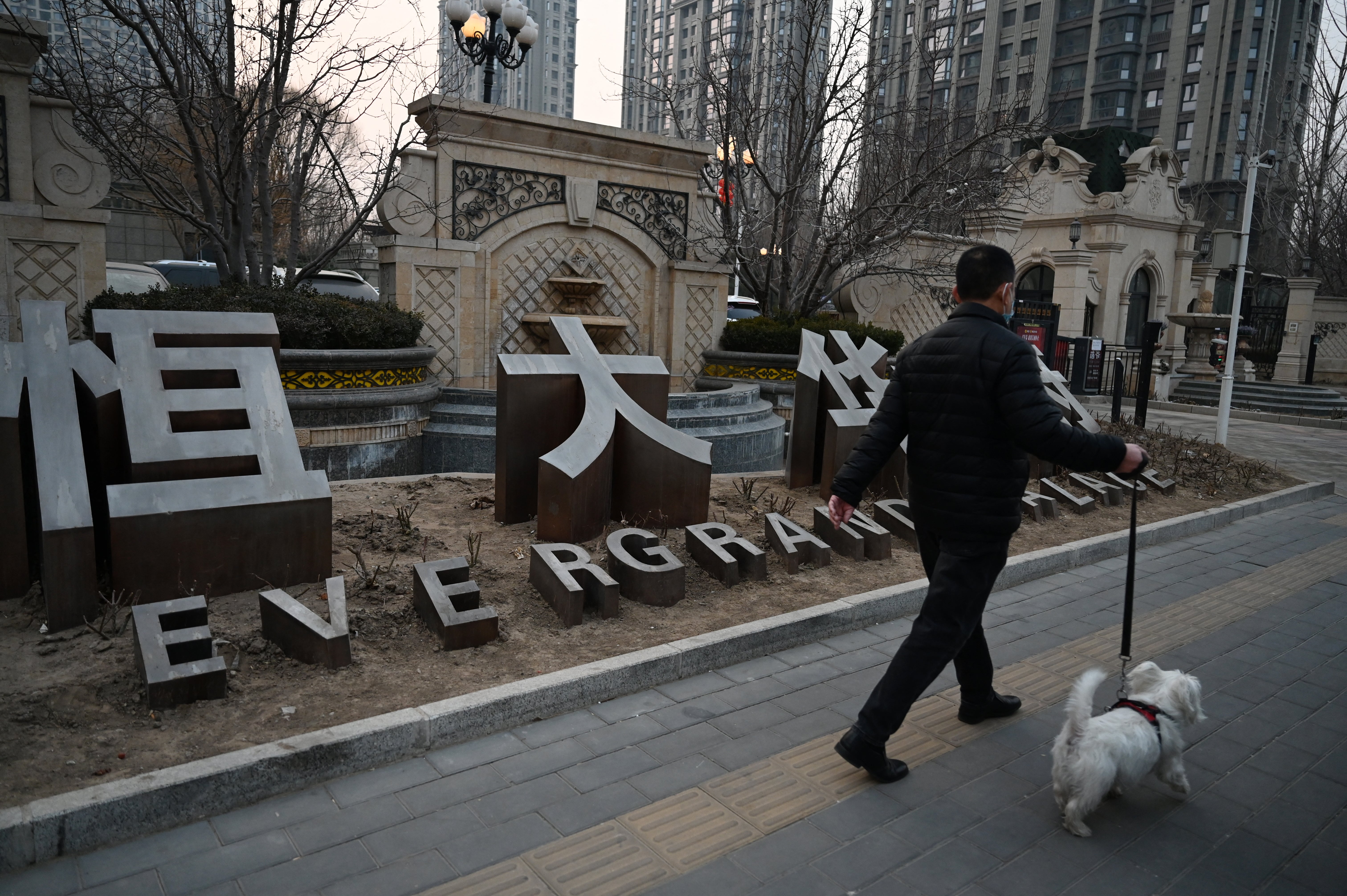The shares of China’s most indebted property giant Evergrande have been taken off the Hong Kong stock market, marking the end of its life as a publicly traded company that symbolised the rise and fall of China’s real estate industry.
Valued at more than $50 billion (£37.1bn) at its peak, Evergrande was China’s biggest property firm. But it became the poster-child for the problems facing Chinese developers after it collapsed under the weight of massive debts in 2021.
“Evergrande’s demise highlights that no private company in China is too big to fail,” Julian Evans-Pritchard, Head of China Economics at Capital Economics told The Independent.
“But the fact that it has taken this long for the company to be delisted underscores the slow-motion nature of China’s property adjustment, with state intervention preventing a more abrupt resolution.”
Evergrande’s 2021 default on offshore bonds led to its shares being suspended in January 2024, after a Hong Kong court ordered liquidation when years of restructuring talks failed.
Last week, the stock exchange confirmed it would cancel the listing because the firm failed to meet the requirement to resume trading within 18 months.
It comes as China’s economy is grappling with a series of challenges, including Trump’s tariffs, weak consumer spending, unemployment, high local government debt and an ageing population.
Experts say the collapse of the property sector has hit the country hardest, as it accounted for roughly a third of China’s economy and provided crucial revenue for local governments.
“It is a symbolic moment given that Evergrande was the first major casualty of China’s property downturn,” Mr Evans-Pritchard said. “The delisting itself won’t have a big impact given that the company’s market capitalisation had already collapsed and trading in the stock was suspended last year.”
“Although the company is being wound down, work on its projects is generally still ongoing, with local governments stepping in to make sure buyers eventually get the homes they bought.”

The company’s fall was as dramatic as its rise. Its founder, Hui Ka Yan, went from living a humble rural life to becoming one of Asia’s richest men.
Evergrande’s growth reflected the debt-fuelled nature of China’s property sector, which expanded rapidly following urbanisation and economic reforms in the 1990s.
Its 2009 listing marked a pivotal moment in that surge, with the company borrowing an unprecedented $20bn on international bond markets.
But the $45bn fortune that put Mr Hui at the top of the Forbes list of wealthiest men in Asia plummeted to less than $1bn.
By March 2024, Mr Hui was banned from China’s capital market for life over Evergrande’s overstating of its revenue by $78bn and he was fined $6.5m.
At the time of its collapse, Evergrande had an empire of 1,300 projects under development across 280 cities, an electric car business and Guangzhou FC. Earlier this year, China’s most successful team was itself kicked out of the football league due to debt.

Built on more than $300bn of borrowed money, Evergrande struggled to meet interest payments after Beijing introduced borrowing limits for developers in 2020.
Deep discounts on properties failed to prevent defaults on overseas debt, ultimately triggering liquidation.
The crisis wiped more than 99 percent from it stock market valuation.
Earlier this month, liquidators Alvarez & Marsal said they have so far recovered just $255m of assets, including a Claude Monet painting, out of the $45bn debt.
They also launched action against the firm’s auditors PwC China after authorities last March said it approved accounts despite inflated revenues in 2019 and 2020.
The housing crisis in China is far from over, with property firms like Country Garden still battling massive debt. Earlier this month China South City Holdings became the largest developer to be forced into liquidation since Evergrande.
“We think the property downturn is likely to continue for at least a couple more years, given that it will take time for the market to fully absorb excess supply as the backlog of unfinished projects are completed,” added Mr Evans-Pritchard.
Beijing launched a range of measures to revive the housing market and consumer spending, including incentives for new homeowners, stock market support, and purchases of electric cars and household goods.
Despite these efforts, China’s growth has slowed to around 5 percent, about half the rates seen in 2010.



